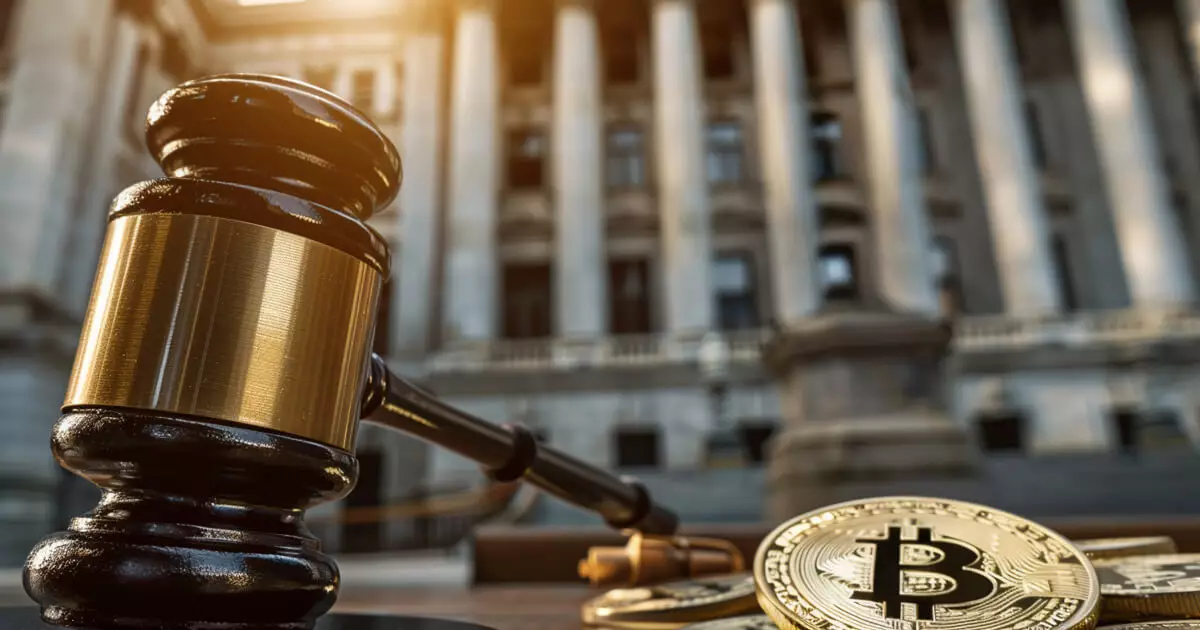The landscape of cryptocurrency regulation in the United States is evolving rapidly, reflecting the increasing recognition of Bitcoin and other digital assets by a growing number of Americans. As advocates work tirelessly to secure individual rights to self-custody Bitcoin, significant initiatives are taking shape at the state level, emulating strategies previously employed in the cannabis industry. This article examines the ongoing struggle for Bitcoin rights, the implications of state-level legislation, and the challenges posed by federal regulations.
Pioneering the Movement: The Role of the Satoshi Action Fund
At the forefront of this movement is the Satoshi Action Fund, a dedicated organization committed to protecting the rights of Bitcoin users by securing state-level legal frameworks. Much like the cannabis sector, which successfully negotiated a complex terrain of federal obstacles, the Fund seeks to create “safe haven” states where residents can freely possess and trade Bitcoin without fear of federal retribution. Dennis Porter, the Fund’s CEO and co-founder, emphasizes that in the absence of federal legislation specifically addressing Bitcoin, state law takes precedence. This perspective underlines a critical strategy: if states can independently legislate protections for Bitcoin, they not only shield residents but also pressure federal authorities to acknowledge these legal frameworks.
Porter’s arguments draw from historical precedents where social movements gained traction at the state level before prompting federal recognition. He believes that by catalyzing action in states like Pennsylvania, the Satoshi Action Fund can foster a nationwide dialogue that compels the federal government to consider similar legislation.
Contrasting Views: Legal Experts Weigh In
However, the path is not without contention. Legal analysts caution against an overly optimistic view of state legislation’s strength in the face of entrenched federal laws. Attorney Joe Carlasare points out a crucial legal principle: federal law generally supersedes state law. This raises concerns about the extensive limits on what states can achieve. Despite agreeing with Porter that banning Bitcoin self-custody poses constitutional challenges, Carlasare highlights potential legal pitfalls. He suggests that while states can enact laws to protect Bitcoin users, the federal government retains the power to preempt those laws if they choose.
Moreover, Carlasare contests the cannabis analogy, arguing that the lack of federal enforcement in cannabis possession cases should not be directly compared to Bitcoin. In his view, while state laws have enabled cannabis consumers to thrive, they do so primarily because federal authorities prioritize larger-scale trafficking operations over minor possession charges.
In a significant stride forward, Pennsylvania recently passed House Bill 2481, heralded as the “Bitcoin Rights” bill. This bipartisan measure, endorsed by both sides of the aisle, aims to protect residents’ rights to self-custody and regulate digital asset transactions. With a substantial majority vote in the House of Representatives, the bill represents a considerable accomplishment for advocates like the Satoshi Action Fund.
Such measures put Pennsylvania on the map as a state proactively engaging in crypto regulation at a time when federal guidelines remain vague. Given that Pennsylvania is home to an estimated 1.5 million crypto owners, this bill could set a precedent that influences other states to adopt similar protections. The goal is to establish a robust legal framework that supports the burgeoning ecosystem of digital assets and boosts investor confidence, doing so independent of a clear federal directive.
As the landscape evolves, the potential ramifications of state-level initiatives extend beyond immediate protections. The developments in Pennsylvania may catalyze a broader movement across the nation, prompting a reevaluation of federal approaches to cryptocurrency. Advocates argue that once a critical mass of states establishes clear legal protections for Bitcoin users, federal authorities are likely to reconsider their stance on regulation—particularly if states successfully demonstrate the economic benefits of embracing cryptocurrency.
Nonetheless, challenges loom large in the form of continuing ambiguity in federal regulation. Agencies such as the Securities and Exchange Commission and the Commodity Futures Trading Commission are still deliberating on how best to regulate digital assets. This indecision leaves a cloud of uncertainty hanging over both individual crypto users and companies operating within the sector.
While the quest for Bitcoin self-custody protections is fraught with legal obstacles and differing opinions, there exists a momentum at the state level that cannot be ignored. The actions taken by states like Pennsylvania serve as a blueprint for other regions and highlight the significance of local governance in navigating the complex digital economy. The outcome of these initiatives may ultimately dictate the future of Bitcoin regulation, establishing new norms that define the relationship between state and federal authorities in the rapidly evolving world of cryptocurrency.
















Leave a Reply